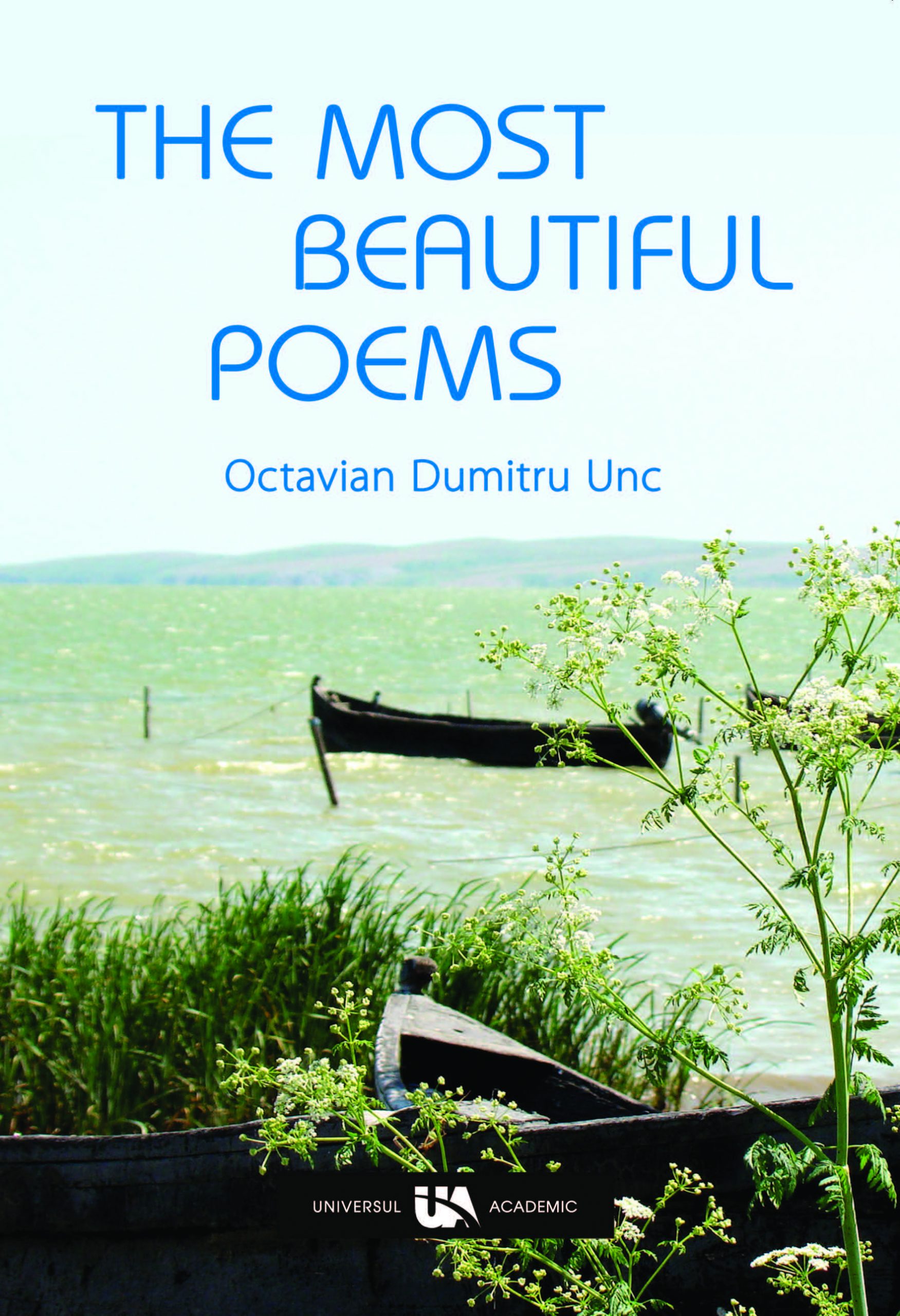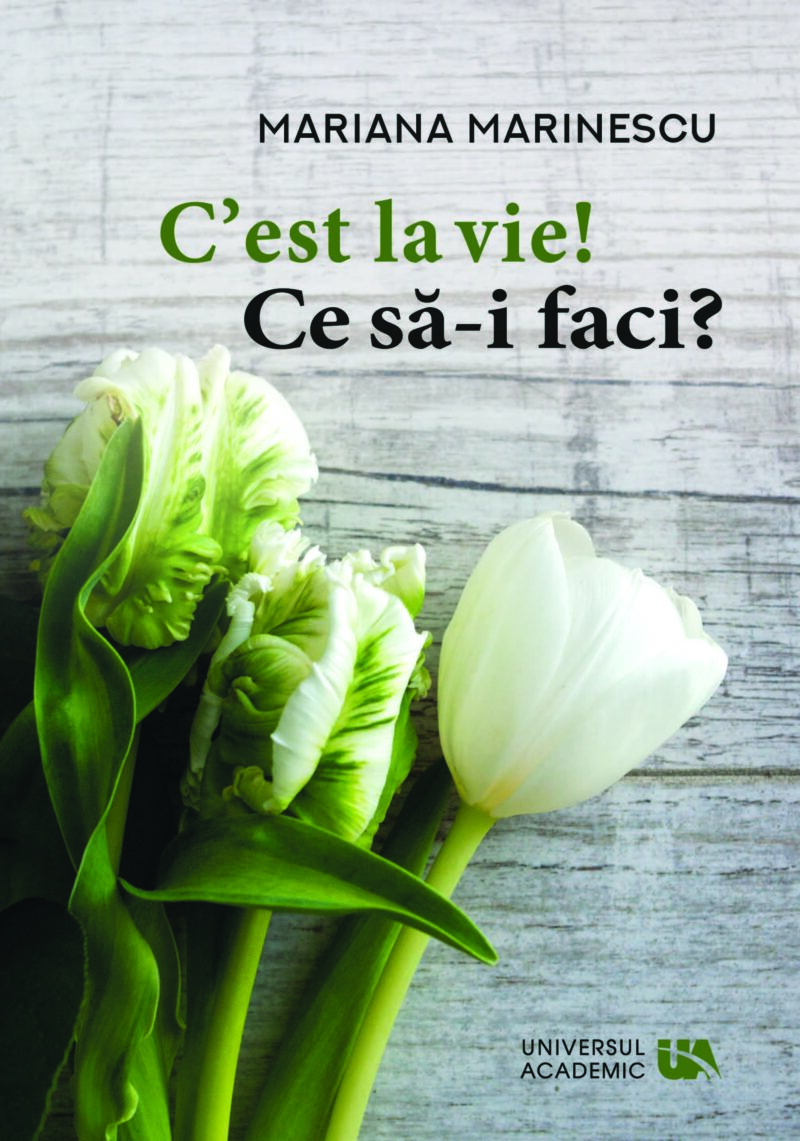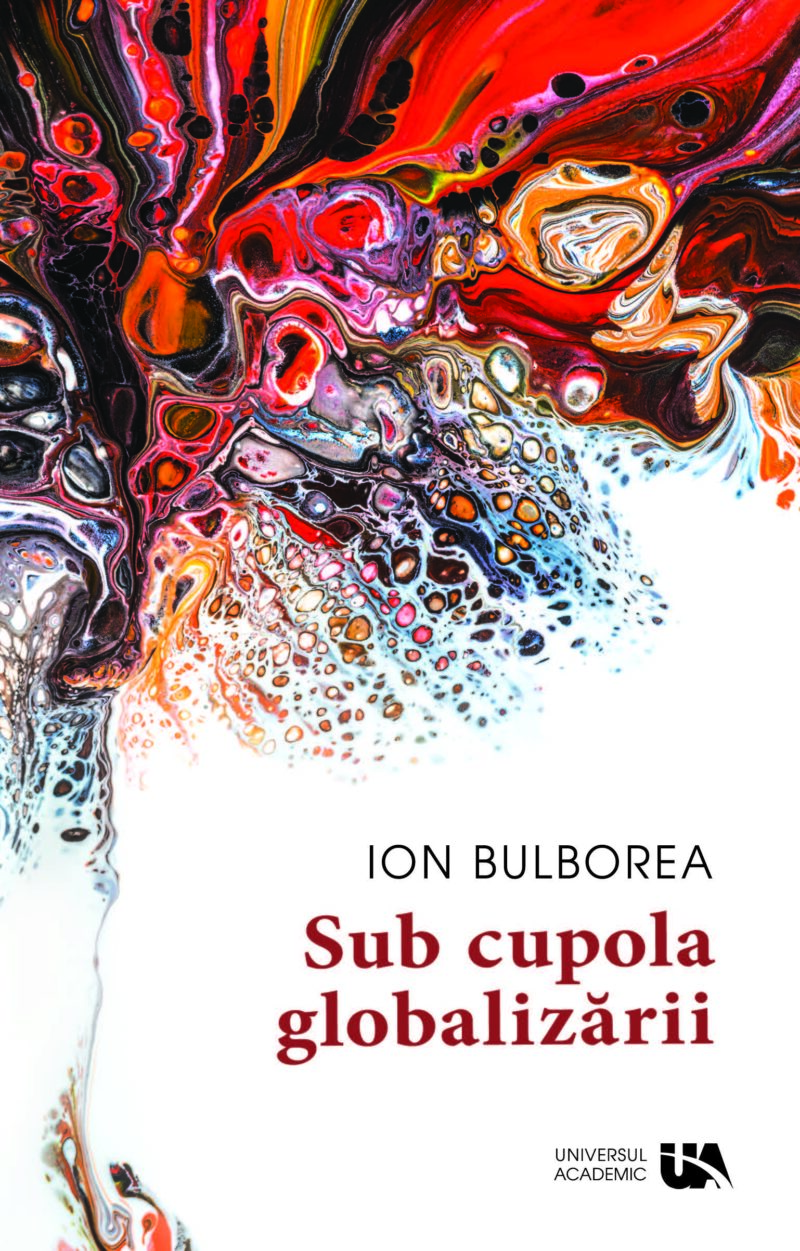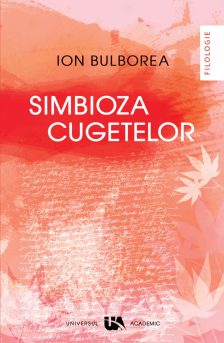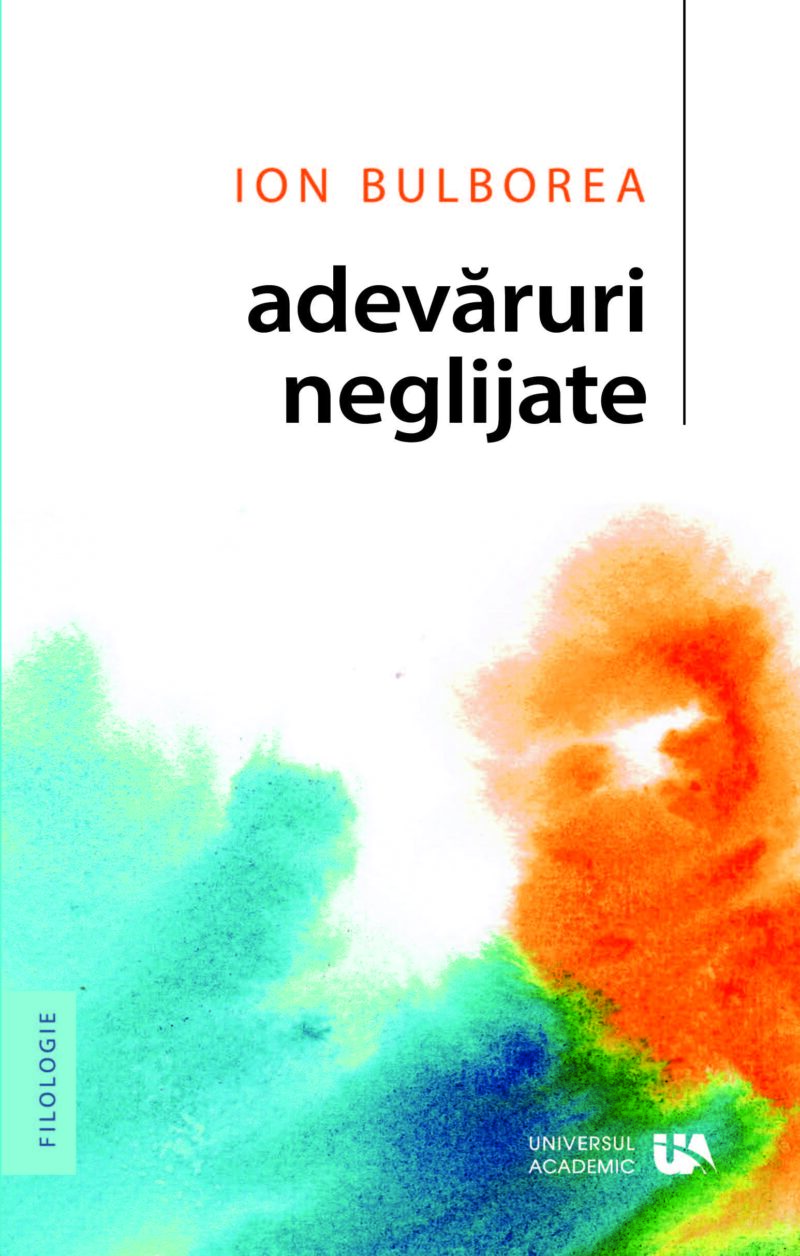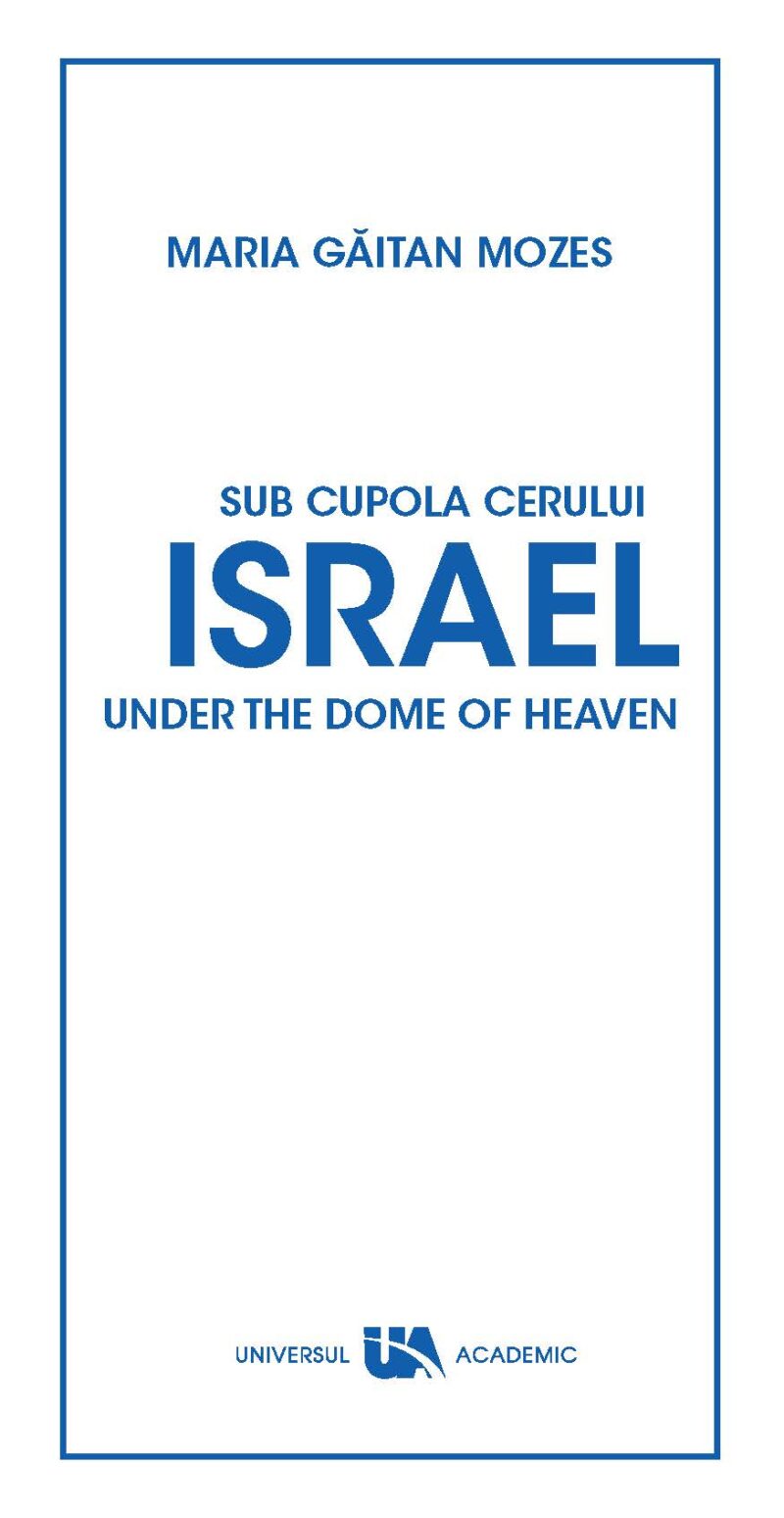The most beautiful poems
20,00 lei
Informații suplimentare
| Autor | |
|---|---|
| Format | 14.8×21 |
| ISBN | 978-606-9062-42-5 |
| Pagini | 184 |
| Data aparitiei | iunie 2020 |
Descriere
“Sun fields hug /The land of Dobrogea/As a yellow tide/With waves of thousand circles/And butterflies brown as seeds/For the coming years, /With the twining wings of the dream, /In a smile full of secretes,/With the black hiding the white/Of the thread and of the clock of life.”
Octavian Dumitru Unc writes an elegiac poetry, a mythical poetry, whose melodious verses painstakingly paint the ancient country of Cavarnia, the former Scythia Minor, from the Măcinului Mountains to the Danube and the Black Sea. An amalgam of peoples, cultures and civilizations have passed, or have remained, to merge together in Dobrogea. The light of Octavian Dumitru Unc’s poetry sings Roman vestiges, Genoese castles, mysterious Greek fortresses, hiding, in the special colors of the place’s solarity, centuries-old stories: “Waves of memories warm the place/in resurrections of/capitals and mosaics,/echo of steps in Roman sandals/to temples of forgotten gods,/chunks of time stuck in clay,/lives hidden in amphorae,/stones with breaths talking about the dead,/altars that kept the ashes.
In the “Songs of Dobrogea”, the realm on the shores of the Danube vibrates in the pastoral lyric of the author, calling upon an ethnic wonder that shelters, in good peace and harmony, the eighteen nations of the realm: Romanians, Macedo-Romanians, Bulgarians, Turkish, Tatars, Gypsies, Jews, Greeks, Armenians, Lipovans, Ukrainians, Gagauzes, Germans, Italians, Albanese, Serbians, Hungarians, etc. The childhood, the lost paradise of the young that grew up playing together, irrespective of the language they spoke at home: “Village of my childhood, /I dig you up like an archeologist of memories, /To find memories of the past…”. “Laz-Mahale/lived his life,/with soda, halva/and tavuk gogsu,/but for a long time dressed in a Dobrogean dress/and played the knackers on Sunday/giving praise/to the holy cross …”
Born from the secrets of the ancestral soul, the lyric aims, above the memories of Strabo, Pliny the Elder or Ptolemy, at the Delta in its eternal and tireless metamorphosis: “Gates open for the wind,/Byzantine murmurs and/Thermae for ants,/Incantations from smoking lamps,/And jewels for women,/That became proof of other times,/Mother of fortress,/Basilica of migratory birds,/Histria is forever/Lonely daughter of the sea.”
Prayers create a tragic, and at the same time, great vision of man, defining himself as a facet of the author’s religious lyricism. I’m looking for you now, mother, too late, / where / I can’t find you anymore, / without suspecting the natural thing, /that you will be / the first one to leave forever / and leave me with this living fire /longing and longing / to kiss you again, /to hug you again /and to tell you again / how much I love you and how much I miss you!/ Lord, / forgive my mother / and give her peace and peace once more/ and then give me peace /so I can finish / this prayer / once again!”
The light and the shadow, the celestial and the telluric, the divine and the profane, this sense of the absolute in the flow of the feeling of loss and regaining the mother, grandparents, the peace of the parental home are part of the lyrical tension that sometimes opens in reveries full of tenderness, delicacy, refinement. The reveries reveal chromatic illusions in delicate pastels in which the stylistic inventiveness seems unstoppable. The “sacralization of the being” (to use an expression of N. Manolescu), the ascension to a perceived divinity, all these bear witness to the deeply religious spirit, the drama of the loss of loved ones that the singer, the bard, the wanderer will find in a world of light. A world of light to which belongs, by purpose and spirituality, the famous surgeon, savior of lives, the dedicated teacher, the master of those who will share his profession, destiny, the Way. Descendant of the lineage of white-robed aristocrats, great intellectuals, philosophers, creators in arts and culture, Professor Unc is a visionary, opener of interdisciplinary horizons from which the new generations of students have a great deal to learn.
His roots extract the sap of life from the deep, from the very deep earth, where the nadir meets the zenith, where his theological spirit expresses the useful form of communication with the “invisible”, the faith. The strong emotional motivation through faith expresses the relation of dependence on a ubiquitous God, the author’s pantheism being found in love as a reason for existence, love for the inhabitants of the ancient fortresses and their sad epodes, love for parents, grandparents, sons, love for the beloved woman, love for all that is alive, as a divine creation.
Octavian Dumitru Unc’s poetry is a hymn of universal love, a portal that covers, as in a delicate veil, the sacralized human being. “O, mighty Lord,/O, You the one without limits and the only one with power,/You, the one who sees and knows everything,/You, the only one who knows why you hold us,/You, the one we need so much to be with/In all and in all time,/But above all, in eternity!/Take care, Lord, of my soul,/today and forever,/ that only it seems the same and moving/in this world and beyond/and only with it do I believe in staying in the true life …”
Irina Airinei

